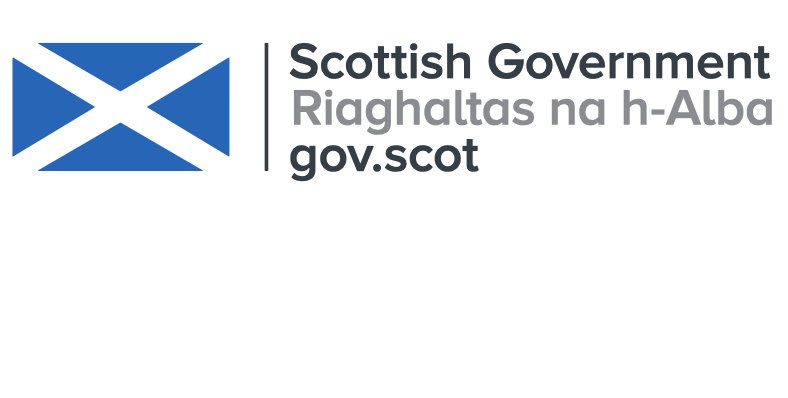City of Edinburgh Council has today agreed recommendations regarding their short-term let policy.
Fiona Campbell, Chief Executive of the Association of Scotland’s Self-Caterers, said:
“Edinburgh Council’s plans are a hammer blow for the tourism industry in the nation’s capital. We are extremely disappointed that business and tourism stakeholder group warnings have once again been overlooked, jeopardising the £70m economic boost self-catering provides to Edinburgh, as well as the hundreds of jobs and livelihoods this supports.”
“What has been agreed amounts to nothing less than a de-facto ban on secondary letting and we note the Council’s recognition that aspects of their policy carry significant legal risk. This is despite the fact that self-catering properties have been a long-standing presence in the capital for decades and should not therefore be used as a convenient scapegoat for policy failures elsewhere.”
“There are also wider implications for Edinburgh, including for the future viability of the Festivals. We are presuming that the rebuttable presumption against the grant of a licence in stairwells, means that no home in a stairwell will be granted a temporary exemption either, in which case the Edinburgh Festival 2023 is in considerable trouble indeed.”
Policy Recommendations
- ECC have removed three additional conditions on maintenance of fire precautions, gas, drainage; keyboxes; and visitor access/departure times
- They won’t be taking forward a cap on numbers at this stage due to a “significant risk” of legal challenge and “insufficient evidence”
- They believe Option A poses less of a risk of legal challenge than Option B
- A further report highlighting the Council’s approach to the enforcement of STL and the associated costs will be brought forward in due course.
Additional Conditions
4.46 As part of the review of the consultation responses, detailed legal advice has also been taken on the proposed additional conditions. As a result, draft STL1 of the proposed conditions (which referred to the maintenance of fire precautions, gas, drainage etc) has been removed from the recommended additional conditions as it was considered that this replicated the terms of the mandatory conditions set by the 1982 Act, which could result in a legal risk to the policy.
4.47 It was further considered that draft conditions STL3, (which referred to visitor access and egress times) and STL6 (which referred to key boxes) of the originally drafted policy may present a legal risk to the Council. Therefore, draft conditions STL3 and 6 has been removed and a revised condition STL2 has been included in the policy. The revised condition seeks to address the same issues as the draft STL3 and STL6 conditions, whilst minimising the risk of legal challenge to the Council.
Cap on Numbers
4.53 It is therefore clear that there is support for a cap on the number of nights, which accommodation may be used for home letting, being introduced. However, taking into account that it is recommended that temporary licences and temporary exemptions should be made available, it is considered too restrictive to introduce a cap of this kind. Additionally, it is considered that there is insufficient evidence on which to base a decision to set a cap and that there would be a significant risk of legal challenge if one were to be introduced. Committee are advised that further work would be required before any further recommendations could be brought forward on this matter.
Secondary Letting in Tenement / Shared Main Door Accommodation
4.20 Trade groups affected have argued strongly that the presumption against these options would amount to a de facto ban on secondary letting within tenements. Members will be aware from their training and experience that with any licensing policy, any application would be required to be considered on its individual merits and applicants would be entitled to make a case for exemption from either of the options presented above. For example, the Licensing Sub-Committee could consider an application for a secondary letting STL licence for accommodation within tenement or shared main door accommodation and would have to determine whether a case had been made by an applicant to be considered an exception to the terms of the policy.
4.21 After consideration of the consultation responses, it is recommended that the Committee agrees that Option A as the most suitable approach in respect of secondary letting in tenement or shared main door accommodation. Option A sets a clear policy direction which has public support. Moreover, legal advice has been sought on the robustness of both options and it is considered that there is a lower risk of successful legal challenge if Option A was included within the policy.
Fees
4.59 The fees are intended to fully recover the costs of delivering a licensing scheme. After consideration of the anticipated costs of administering and enforcing a licensing regime for STLs, officers propose application fees as outlined at Appendix 7. In order to give some context, the fee for a three person occupancy secondary letting application equates to a cost of £12.56 per week to the applicant. For the same type of application with a 21 person occupancy, the cost of the application equates to £113 per week. See below.
Press Coverage:
- Scottish Housing News: https://www.scottishhousingnews.com/articles/edinburgh-agrees-new-powers-to-regulate-short-term-lets
- The Times: https://www.thetimes.co.uk/article/letting-laws-will-wipe-out-flats-during-edinburgh-festivals-sc2stzjjb
- Landlord Today: https://www.landlordtoday.co.uk/breaking-news/2022/9/first-airbnb-and-short-let-licensing-system-starts-tomorrow?source=newsticker
- Holyrood: https://www.holyrood.com/news/view,edinburgh-introduces-further-rules-to-curb-airbnbstyle-shortterm-lets-in-the-city
- The Herald: https://www.heraldscotland.com/politics/22931977.rental-market-warning-landlords-sell-off-properties-due-anti-landlord-rhetoric/
- Scottish Housing News, Edinburgh agrees new powers to regulate short term lets
- Evening News, Edinburgh Airbnbs: Short term lets in tenements won’t get licence unless ‘good reason’
- STV News: https://news.stv.tv/east-central/edinburgh-agrees-new-powers-to-regulate-short-term-lets
- Outside of Edinburgh, the ASSC also get a mention in relation to East Ayrshire’s plans: https://www.dailyrecord.co.uk/ayrshire/airbnb-licensing-national-solution-edinburgh-28123412
-
STR: https://shorttermrentalz.com/news/short-term-lets-licensing-scotland/
-
Letting Agent Today: https://www.lettingagenttoday.co.uk/breaking-news/2022/10/agent-slams-new-rules-for-airbnb-and-other-short-let-rentals?source=newsticker



